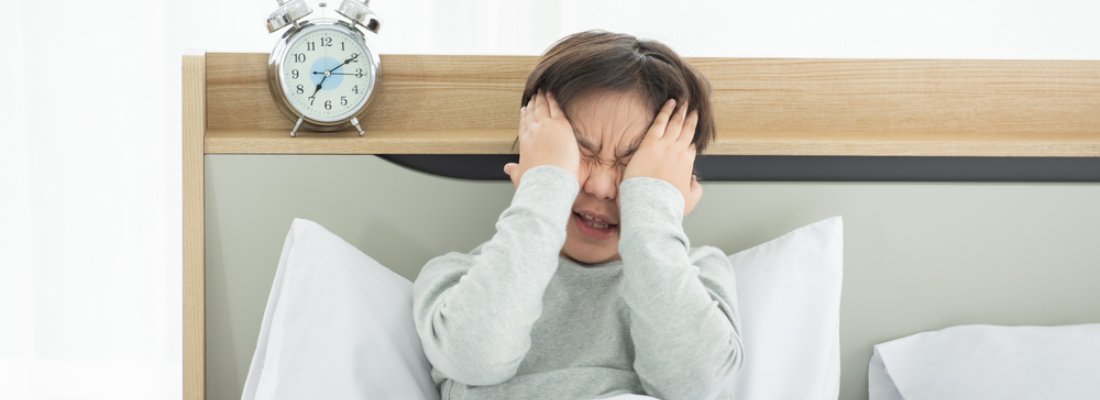
Sleep deprivation affects millions of people worldwide, leading to significant mental health issues that can disrupt daily life. The impact of inadequate sleep extends beyond mere fatigue; it can result in various psychological and emotional challenges that affect overall functioning.
One severe outcome of prolonged sleep deprivation is sleep deprivation psychosis. This condition occurs when a lack of sleep disrupts normal brain function, leading to distressing symptoms like hallucinations and delusions. Individuals experiencing this condition may perceive things that are not present or hold false beliefs, creating a distorted sense of reality.
Recognizing the signs and symptoms of sleep deprivation psychosis is crucial for timely intervention. Early identification of these symptoms can prevent escalation and minimize the risk of long-term mental health consequences. Without prompt action, individuals may find themselves trapped in a cycle of worsening symptoms, which can further impair their ability to cope with daily life.
In today’s fast-paced world, where work and social demands often overshadow the need for rest, it is vital to emphasize the importance of sleep. Prioritizing sleep hygiene, such as establishing consistent sleep schedules and creating a relaxing bedtime routine, can significantly improve sleep quality and overall mental health.
Understanding Sleep Deprivation
Sleep deprivation refers to not getting enough sleep to function properly. It can result from various factors and has significant implications for mental health.
Causes of Sleep Deprivation
Lifestyle factors
They play a major role in sleep deprivation. Many people experience demanding work schedules that extend beyond typical hours, making it difficult to prioritize sleep. Additionally, social obligations, such as late-night outings or family gatherings, can disrupt sleep routines. Technology also contributes to this issue; excessive screen time before bed can interfere with the body’s natural sleep-wake cycle.
Medical conditions
Medical conditions can significantly impact sleep quality and duration. For instance, insomnia involves persistent difficulties in falling or staying asleep, often leading to chronic sleep deprivation. Similarly, sleep apnea, a condition where breathing repeatedly stops during sleep, can disrupt restful sleep cycles. Both conditions not only contribute to fatigue but also increase the risk of developing sleep deprivation psychosis, a serious mental health concern.
Psychological factors
They further complicate sleep deprivation. Anxiety often causes racing thoughts, making it hard to relax and fall asleep. Individuals dealing with depression may experience changes in sleep patterns, either sleeping too much or not enough. These psychological issues can create a vicious cycle, as lack of sleep can worsen mental health symptoms, heightening the risk of developing this sleep disorder.
Statistics
Statistics indicate that sleep deprivation affects a significant portion of the population. Research shows that around 35% of adults report getting less than the recommended seven hours of sleep per night. Furthermore, nearly 50% of individuals with mental health disorders experience sleep problems, highlighting the urgent need for awareness and intervention.
Understanding these causes is essential for preventing the escalation of symptoms and managing the potential onset of sleep deprivation psychosis. By recognizing the various factors contributing to sleep deprivation, individuals can take proactive steps to improve their sleep hygiene and overall mental well-being.
Signs and Symptoms of Sleep Deprivation Psychosis
Sleep deprivation psychosis manifests through various signs and symptoms that can significantly impact daily life. Understanding these symptoms is necessary for timely intervention.
1. Psychological Symptoms
Hallucinations are common in individuals experiencing psychosis from sleep deprivation. These hallucinations can be visual, such as seeing things that aren’t there, or auditory, like hearing voices.
Delusions and paranoia often accompany these hallucinations. As a result, people may develop unfounded beliefs or become suspicious of others. This altered perception of reality can create distressing situations for the individual and their loved ones.
Disorganized thinking and speech frequently occur as well. Those suffering from sleep deprivation psychosis may struggle to express coherent thoughts. Their speech may become jumbled or hard to follow, complicating communication.
2. Physical Symptoms
Extreme fatigue and exhaustion are hallmark signs of sleep deprivation. Individuals often feel tired regardless of how much rest they manage to get.
Decreased coordination and motor skills can result from prolonged sleep deprivation. Simple tasks, such as walking or writing, may become challenging due to impaired motor function.
Changes in appetite and weight also occur. Some individuals may experience increased hunger, while others may lose their appetite altogether. These fluctuations can lead to unhealthy weight changes, compounding the effects of sleep deprivation.
3. Emotional Symptoms
Increased irritability and mood swings are common emotional symptoms. Individuals may find themselves easily frustrated or upset over minor issues, reflecting their internal struggle.
Heightened anxiety and depression can also arise in those with this condition. The lack of sleep exacerbates existing mental health conditions, creating a cycle of worsening symptoms. Recognizing these emotional signs is crucial for seeking timely help and support.
Overall, identifying the signs and symptoms of sleep deprivation psychosis can lead to early intervention. Moreover, by addressing these issues promptly, individuals can begin to recover and restore their mental health.
Duration of Sleep Deprivation Psychosis
The duration of sleep-deprived psychosis varies among individuals. Symptoms usually persist from a few days to several weeks.
In mild cases, individuals may experience shorter episodes of psychosis from sleep deprivation. These episodes often resolve once they get adequate sleep.
In more severe situations, symptoms may persist longer, especially if the underlying issues remain unaddressed. Chronic sleep deprivation can lead to prolonged psychotic symptoms, complicating recovery.
Timely intervention significantly impacts the duration of sleep-deprived psychosis. Seeking help promptly can help reduce symptoms and restore mental health.
Ultimately, prioritizing sleep hygiene is essential to prevent psychosis from sleep deprivation and ensure overall well-being.
Diagnosis of Sleep Deprivation Psychosis
Diagnosing this disorder involves a thorough evaluation of symptoms and medical history. Healthcare professionals often assess the duration and severity of sleep deprivation. They may also conduct psychological evaluations to rule out other mental health disorders.
Furthermore, a sleep study can provide valuable diagnostic information, enabling healthcare providers to understand the relationship between sleep deprivation and psychotic symptoms better. By identifying the root causes of sleep issues, appropriate treatment can be initiated to improve overall mental health.
Treatment Options for Sleep Deprivation Psychosis
Treatments focus on restoring sleep and addressing underlying issues.
- Sleep hygiene practices are crucial in treatment. Individuals should maintain a consistent sleep schedule and establish a calming bedtime routine. Additionally, minimizing caffeine and screen time before bed can improve sleep quality.
- Cognitive Behavioral Therapy (CBT) effectively addresses the thought patterns associated with this condition. CBT helps individuals develop coping strategies to manage stress and anxiety, which can improve sleep.
- Medication may be necessary for some individuals experiencing psychosis from sleep deprivation. Doctors may prescribe medications to treat underlying conditions, such as anxiety or depression. However, medications should complement other treatment methods, not replace them.
Lastly, seeking professional help is vital for recovery. Prompt intervention can greatly lessen the condition’s severity. Professionals can provide personalized treatment plans to promote better mental health and restore sleep patterns.
Conclusion
In conclusion, sleep deprivation psychosis poses significant risks to mental health, manifesting through psychological, physical, and emotional symptoms. Recognizing these signs early is essential for effective intervention and recovery. By understanding the causes and consequences of sleep deprivation, individuals can prioritize sleep hygiene and seek professional help when needed. Implementing strategies such as consistent sleep schedules and cognitive behavioral therapy can greatly enhance overall well-being. Ultimately, fostering awareness of sleep deprivation psychosis enables individuals to take proactive steps toward better mental health, ensuring they maintain a healthier and more balanced life.

